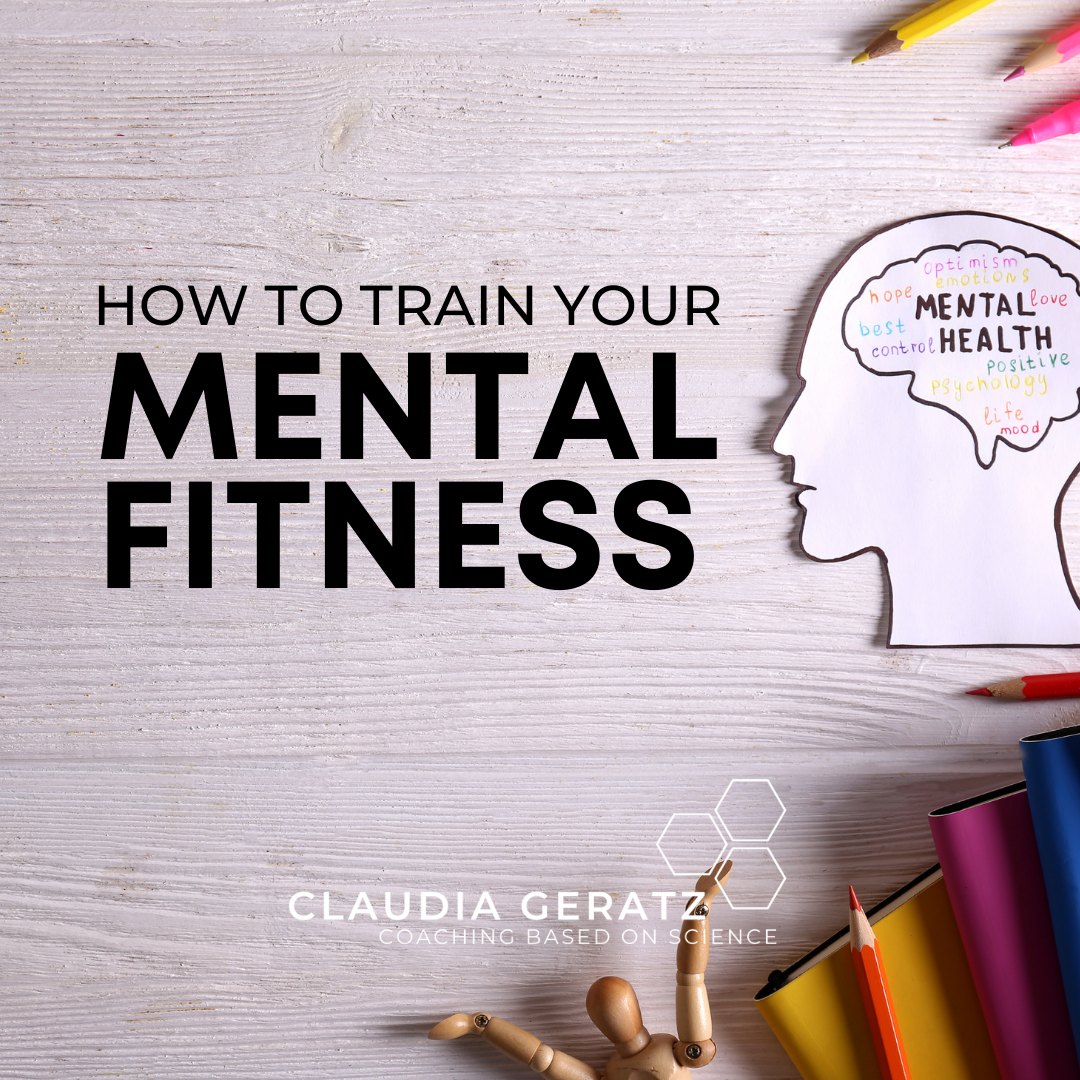What is Mental Fitness? Proven Strategies to Train Your Brain
If I asked you what you are doing for your fitness these days, chances are you are going to tell me about your active morning routine, your gym class, your walks with your dog or how you have discovered running recently.
But what does your mental fitness routine look like?
What is mental fitness?
Mental fitness is an umbrella term for working towards and maintaining a positive state of your mental wellbeing. Like you work out your body to maintain its healthy functioning, you can work out your brain to allow it to flourish and thrive. Mental fitness is defined as a person’s ability to think clearly and to flexibly use their resources and skills to adapt to challenges or advantages, with the goal to enable thriving.
Most importantly, mental fitness is measurable, meaning you can track it like you track your running times. Your mental fitness can be improved over time, like you train to become better at push-ups.
Like physical fitness, mental fitness includes positive mental health assessments, activities and practices that can assist you in building your mental fitness over time.
The benefits of mental fitness
Mental fitness originates from the field of Positive Psychology, where a great number of mental fitness activities have been identified that can help people train their mental wellbeing. Looking at the evidence-base so far, there are a great number of reasons why you should add your mental fitness to your workout routine:
Positive impact on your mood. Improved mood, feeling less anxious, a greater sense of inner calm and balance and with that higher confidence.
Improved cognitive functioning. The ability to choose how to react, clarity in thinking, better ideas, higher focus, better processing speed and improved memory.
Better relationships. Heightened compassion and empathy for others, better communication through thinking before reacting, more open to other perspectives.
Developing positive habits. Being mentally fit makes it easier to develop and stick to positive daily habits. Confidence, calmness and a positive state of being all help to stick to positive habits.
A better YOU. A mentally fit you will be full of confidence, joy, clarity, calmness and compassion. Doesn’t that sound like a great place to be?
Proven strategies to train your brain
As with your physical fitness, variation is the key. Below I review 4 categories of mental fitness activities: action, calmness, observing and connecting.
Action activities. You love the hands-on approach to new things? Get more physical exercise! Yes, that’s right. The body and mind are connected and what is good for your body is almost always good for your mind. If you already have a regular exercise routine, pay attention to the effect these exercises have on your mind. Which ones are calming? Which ones give you energy? When does that effect set in? How can you use that as a mental wellbeing tool?
Calmness activities. Mindfulness, meditation and journaling are your best bets for training your mental fitness. Try what works for you and adapt it to how you feel each day. Some people recommend daily meditation or daily journaling. If this works for you, perfect, keep at it. But the majority of people loose their motivation when something becomes a chore or a must-do. A better approach to mental fitness is to commit to do 1 activity for your mental wellbeing per day - and you choose which one you feel like on that day. Make a list with your favourite mental fitness workouts and choose what suits you best each day. Rest. Make sure to get enough sleep.
Observing activities. Become your own observer and tune in with what you need. Like getting to know your body, get to know your mind. Notice your thoughts. Are they helpful or limiting? Reframe negative self-talk. Notice things and people around you. Go for a mindful walk and notice nature.
Connecting activities. Don’t underestimate the power of positive social connections. Make time to spend with the people around you that give you energy. Practice positive reminiscing as a means to have a joint mental fitness session. Take your partner or loved one on a strengths date.
As with your physical fitness goals, the best strategy is to start small. Pick one activity to try this week and observe how this feels for you.
Which of these strategies are easy to fit into your day-to-day?
What commitment do you want to make for improving your mental fitness this week?
You like this article?
Sign up for our newsletter to stay up to date with new blogs and all things wellbeing and positive psychology at work! Monthly updates - high-quality content - no spam!






